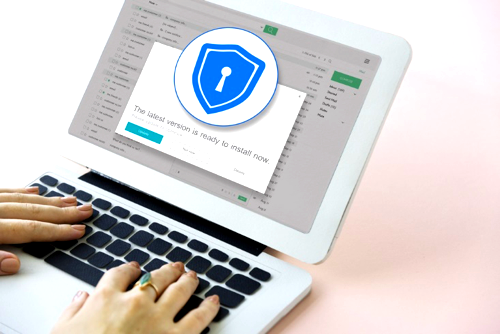Your computer needs antivirus protection — and while you’re at it, you should pay for some antivirus app on your smartphone, too. Both of these devices are filled with valuable data that cybercriminals would love to get their hands on. However, even more importantly, your computer and smartphone are critical for your daily life, meaning if they succumb to viruses, you might not be able to function.

However, you can’t trust just any antivirus tool. Antivirus comes at all price points, from free to ungodly expensive, and they offer a range of services, many of which you might not need as a consumer. So, if you searched for “antivirus software” and downloaded the first package you saw, you might want to consider the following signs that you security tool you trust isn’t doing you any favors:
Table of Contents
If Your Data Goes Missing
Your personal data is exactly what cybercriminals are interested in gaining access to — thus, it is the reason you have antivirus protection in the first place. While hackers of yore merely spread mischief with their viruses and worms, modern cyber attackers want to steal your pictures, your logins and passwords, your social security numbers and other data that might be stored on your device. This information they can use to gain access to your financial accounts, or they can sell this information to other nefarious characters who will do the same or worse.
If You Get Pop-ups
These days, few legitimate websites come with pop-ups; instead, they utilize the more popular (and infinitely more aggravating) popovers, which cover a window and are not nearly as easy to eliminate with software or browser plugins. Many antivirus software suites come with pop-up protection because most pop-ups these days are laced with corrupt links, content and downloads. Additionally, pop-ups are often caused by adware somewhere on the device, which antivirus can identify and remove. Unfortunately, some bare-bones antivirus programs don’t offer this service, which means you might need to download additional software to eliminate this frustrating and dangerous activity.
If Your Device Crashes
An older computer might frequently buckle under the weight of newer applications, especially if you are asking your machine to run software that is well outside the device’s processing or memory constraints. Additionally, older devices might have other issues, like failing hardware components, that cause crashing.
Still, constant crashes are a good sign of malware, as well. Some particularly pernicious malware will cause computers to crash when antivirus scans are running, preventing the tool from eradicating the infection. If you notice such a pattern in your crashes, you should consider downloading a more powerful antivirus tool — that still fits your computer’s operating requirements.
If Your Device Slows Down

A computer will slow when running programs command the majority of its processing power. Unfortunately, there could easily be running programs on your device that you don’t know about or consent to. A new type of malware called cryptojacking excels at hiding from view, even from many antivirus programs; then, the malware taps into the computer’s processors to mine cryptocurrency for its author. This will immediately make it more difficult for you to use your device, and over time, it will degrade your computer’s hardware. In this case, you need a more updated antivirus tool to catch the more advanced malware.
Of course, your computer might also be slower because of the antivirus software. Antivirus tools shouldn’t need to coopt your device’s processing power to catch corrupt links and files; it should be able to run quietly in the background or when you aren’t actively using your machine. If an antivirus program itself is interfering with your ability to use your device, it has to go.
When any of these symptoms occur, your antivirus isn’t working as it should. At the very least, your antivirus software has significant vulnerabilities that attackers are exploiting; at the worst, the software itself is a Trojan horse, a type of malware that seems legitimate but has disastrous effects. Your first step should be to invest in a paid antivirus software from a respectable source to verify that your old program isn’t sound and to remove any malware that might linger on your device.
It’s safe to say that antivirus software is among the most important tools installed on your device — so you should be willing and able to choose the program that suits your needs best. Pay attention to how your antivirus is behaving, and you might notice that it’s time for an upgrade.
Leave a Reply